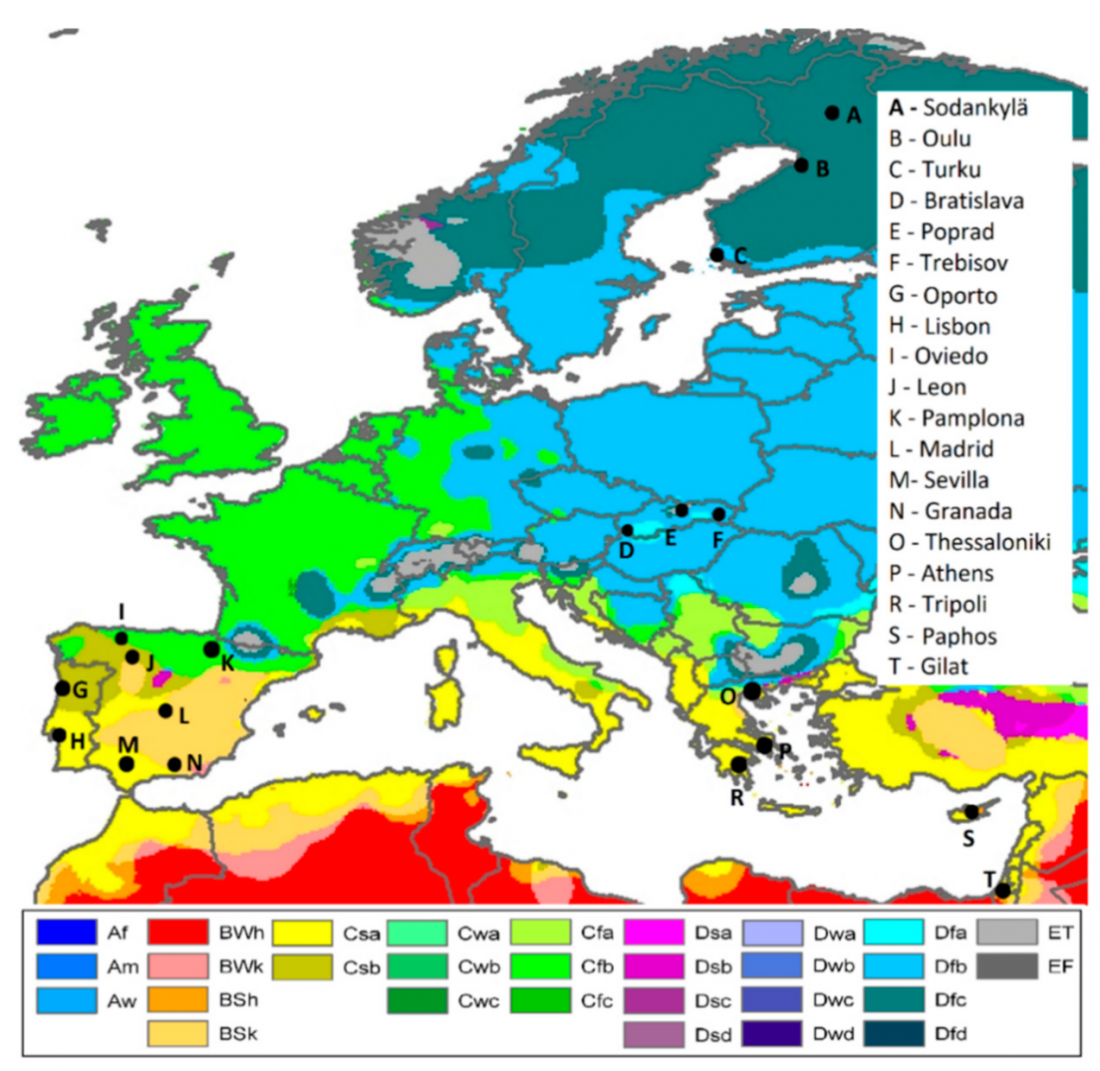Green building and adaptation as promoted by GREENinMED to become essential - shows 'future demand' case study

In light of the current heatwave sweeping across Europe, one cannot help but wonder how global populations can be aided in adapting to climate change in the coming decades. A 2021 case study of seven countries, including five Mediterranean countries, analyses the effects of change in temperatures in the residential sector cooling demand in 2050, by estimating cooling degree days and hours. As these countries are also major tourism destinations, the results should be taken into consideration for sustainable planning and adaptation in the tourism sector as well, making the study an important resource for the transboundary GREENinMED project, which aims to increase water and energy efficiency and sustainability in the Mediterranean tourism industry.
The academic paper entitled Cooling Degree Models and Future Energy Demand in the Residential Sector is the result of collaborative research by scientists from Cyprus, Finland, Greece, Israel, Portugal, Slovakia, and Spain, and demonstrates the growing need for space cooling energy demand given the steady increase in intensity and duration of hot and extreme weather events. Understanding future temperature variations and the associated impacts on building cooling demand will allow mitigating future issues related to a warmer climate.
The study emphasizes the need for building design to be based on the implications of projected climatic scenario in the cooling energy demand rather than on past climatic data. It shows that energy-efficiency solutions must be occupant-centered rather than solely focused on technology, thus enabling occupants to adapt to different indoor thermal comfort conditions. Building design and refurbishment must be based on projected climate changes during the building life cycle rather than on past and present climatic data.
The GREENinMED projects aims to make the tourism industry in the Mediterranean region more sustainable by a series of actions promoting energy and water efficient development in the sector. So far sustainability consultations by experts in the field have been provided to a total of 30 small and medium-sized hospitality businesses in Spain, France, and Israel, and a number of public workshops on the topic have been held in all three countries. The project partners are now launching open calls for the generation of new innovative products or services for the tourism industry and sector. A total of 16 companies will receive grants to develop or adapt new products or services to the needs of greater efficiency in water and energy consumption and/or management by companies in the tourism sector.
The full publication can be accessed here.







